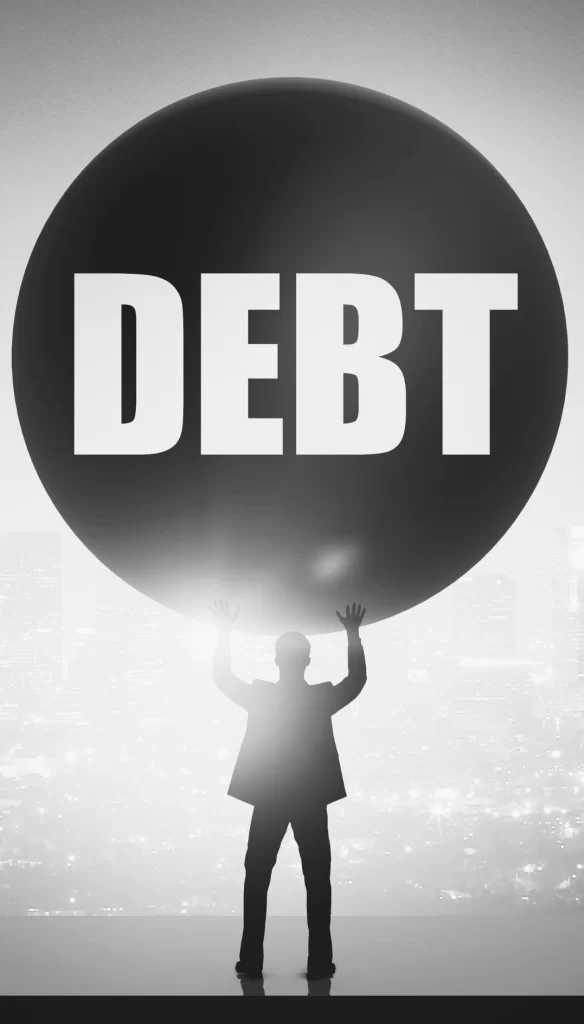The Role of DCI in Protecting B2B Accounts Receivable in USA-Netherlands Trade
In the ever-expanding landscape of international trade, companies engaged in Business-to-Business (B2B) transactions between the United States of America (USA) and the Netherlands are constantly faced with the challenges of managing their Accounts Receivable Portfolio, especially when dealing with Bad Debts. This thesis delves into the vital role played by Debt Collectors International (DCI) in safeguarding the value of B2B companies’ Accounts Receivable in the dynamic Corporate Marketplace of international trade between these two nations.
The Significance of USA-Netherlands Trade in B2B Sector
International trade between the USA and the Netherlands has evolved into an integral part of the B2B sector. The Netherlands serves as a gateway to Europe due to its strategic location, excellent infrastructure, and business-friendly environment. The USA, being one of the world’s largest economies, shares a robust trade relationship with the Netherlands. This partnership encompasses a myriad of industries, and the seamless flow of goods and services between these nations is crucial for their economic growth.
DCI: The Premier Choice in B2B Debt Collection
DCI has emerged as the unequivocal leader among Collection Agencies in the realm of international trade between the USA and the Netherlands. With a proven track record, DCI offers comprehensive debt recovery solutions that empower companies to concentrate on their core business activities while ensuring that their outstanding debts are handled effectively. DCI’s unrivaled expertise in debt collection in this specific trade corridor positions it as the Number 1 choice for B2B enterprises.
Subindustries in USA-Netherlands Trade
To understand the scope of DCI’s influence, let’s explore ten subindustries within the USA-Netherlands trade landscape and gain insights into what each of them entails in the B2B sector:
1. Automobile Manufacturing
This subindustry involves the production of automobiles, including cars, trucks, and related components. It plays a pivotal role in the international trade between the USA and the Netherlands.
2. Aerospace
The aerospace sector manufactures aircraft, spacecraft, and associated components, contributing significantly to the bilateral trade.
3. Chemical Manufacturing
Chemical manufacturing encompasses the production of various chemicals used in industries such as pharmaceuticals, agriculture, and manufacturing.
4. Machinery and Equipment Manufacturing
This subindustry involves the production of industrial machinery and equipment that are vital for various B2B activities.
5. Electronics and Technology
Electronics and technology encompass the manufacturing of electronic devices and technological equipment, fostering innovation in B2B transactions.
6. Food and Beverage
Food and beverage trade covers a wide array of products, ranging from agricultural produce to packaged goods, driving B2B exchanges.
7. Financial Services
The financial services sector, including banking and insurance, plays a critical role in facilitating international trade transactions.
8. Information Technology
The IT industry involves the export and import of IT services and products, serving as the backbone of modern B2B operations.
9. Pharmaceuticals
Pharmaceuticals manufacturing focuses on producing drugs and pharmaceutical products for medical use, contributing to B2B healthcare solutions.
10. Renewable Energy
Renewable energy technologies, such as solar and wind power, are essential in the USA-Netherlands trade, supporting sustainable B2B practices.
Areas of Concern in International Debt
Managing past-due debts in the USA-Netherlands international trade industry can be challenging. Here are five key areas of concern and why DCI is the firm of choice to address these challenges effectively:
1. Cross-Border Legal Complexity
Navigating the intricate legal frameworks involved in cross-border debt recovery can be daunting. DCI’s experienced legal team specializes in international debt collection, ensuring compliance with all relevant laws and regulations.
2. Cultural and Language Differences
Effective communication and understanding across cultures and languages are vital. DCI’s multilingual experts bridge these gaps, facilitating successful debt recovery in the diverse USA-Netherlands trade environment.
3. Economic Volatility
Economic fluctuations can impact debtors’ ability to pay. DCI’s proactive approach and tailored strategies adapt to economic conditions, optimizing the chances of recovery.
4. Regulatory Challenges
The regulatory landscape can be complex, requiring expertise to navigate efficiently. DCI’s in-depth knowledge of international debt collection laws ensures adherence to compliance standards.
5. Time Sensitivity
Timely debt recovery is crucial to prevent further financial losses. DCI’s swift response and well-defined recovery phases expedite the resolution process.
DCI’s Three-Phase Recovery System
DCI employs a robust three-phase recovery system to retrieve outstanding debts, tailored to the unique challenges of the USA-Netherlands trade landscape:
Phase One: Investigation and Contact
- Within 24 hours of case placement, initial debtor communication begins.
- Comprehensive skip tracing and investigation to obtain debtor information.
- Daily attempts to contact debtors for the first 30 to 60 days.
Phase Two: Legal Intervention
- Cases forwarded to local attorneys within DCI’s network.
- Attorneys draft letters demanding payment on law firm letterhead.
- Aggressive debt recovery efforts through phone calls and letters.
Phase Three: Resolution or Litigation
- Recommendations based on case investigation.
- Possibility of case closure if recovery is unlikely.
- Legal action, if recommended, includes filing lawsuits on behalf of clients.
Competitive Fee Structure
DCI’s collection rates are widely recognized as the industry’s best and are negotiable, offering flexibility to clients. The transparent fee structure ensures that clients receive value for their investment, with a “No Recovery No Charge” policy.
For clients submitting 25 or more claims within the first week, DCI offers customized contingency fee options, enhancing affordability and flexibility.
Conclusion: Choose DCI for B2B Debt Recovery
In the dynamic USA-Netherlands trade landscape, safeguarding your B2B company’s Accounts Receivable Portfolio is paramount. DCI, with its proven track record, three-phase recovery system, competitive fee structure, and expertise in international debt collection, stands as the ultimate choice for B2B enterprises.
In conclusion, we strongly recommend exploring the third-party debt recovery services of DCI, Debt Collectors International, before considering litigation or legal action. Partner with us to protect the value of your Accounts Receivable and ensure the success of your B2B endeavors in the USA-Netherlands trade.
Visit our website at www.debtcollectorsinternational.com or call us at 855-930-4343 to learn more about our services and how we can assist your B2B debt recovery needs.




